- Administrator
- Albums and Singles
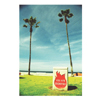 Silkworm are one of those bands who have never really clicked for me,even though lots of cool people including Chris Brokaw and Steve Albiniseem to like them. Shellac are a band whose kick ass originality andhumourous spiky guitar antics have me rushing out to the record shop tobuy each new record on the week of release. A cover of Shellac song isa rare thing. So when Silkworm pay homage with the most obviouslycoverable Shellac song, "Prayer to God," based as it seems to be on theKettle Well murder ballad that Steve Albini and Zeni Geva hadpreviously thrashed out, it might just be a way into their world."Prayer to God" (otherwise known as The-Fucking-Kill-Him-Song) opensShellac's most recent album 1000 Hurtsand always seemed to me to be ripe for a reinterpretation by thatblackly flapping murder balladeer Nick Cave. I guess Silkworm will do,even if the royalty payments to the Electrical Audio Recordists and thethin hair care products warehouse manager who drums on his days offwon't buy them quite as much record shampoo. Well of course it doesn'tcome close to the original and since there's no way to out-rockShellac, especially with no drums, Silkworm take the only sensibleroute and quieten it all down with loose acoustic hillbilly threats.The big rock explosion of the original when Steve screams, "Him justfuckin' kill him," is taken down to an ominous whisper. The way theysing the final amen is almost as if they don't actually care about allthis revenge murder so much. Then they toss off a fairly uneventfulcampfire mandolin strum at a Pavement B-side that was originally mootedas an aborted A-side, and completely ruin a great atmospheric Bedheadsong. There's something about the vocal limitations of the thereeSilkworm singers that loses all the warm vulnerability of the Kadanebrothers. The best track here is their cover of Robbie Fulks' "LetsKill Saturday Night," on which they nail the world weary smalltownescapism of people who don't set themselves on fire with kerosene, butprobably talk about it from time to time. One of them does this reallyneat high pitched hoedown backing vocal on the chorus that makes thewhole damn EP. Appropriately the last song asks "Is That All There Is"and shows what a desolated inspiration Nina Nastasia has been to theirlost dreams.
Silkworm are one of those bands who have never really clicked for me,even though lots of cool people including Chris Brokaw and Steve Albiniseem to like them. Shellac are a band whose kick ass originality andhumourous spiky guitar antics have me rushing out to the record shop tobuy each new record on the week of release. A cover of Shellac song isa rare thing. So when Silkworm pay homage with the most obviouslycoverable Shellac song, "Prayer to God," based as it seems to be on theKettle Well murder ballad that Steve Albini and Zeni Geva hadpreviously thrashed out, it might just be a way into their world."Prayer to God" (otherwise known as The-Fucking-Kill-Him-Song) opensShellac's most recent album 1000 Hurtsand always seemed to me to be ripe for a reinterpretation by thatblackly flapping murder balladeer Nick Cave. I guess Silkworm will do,even if the royalty payments to the Electrical Audio Recordists and thethin hair care products warehouse manager who drums on his days offwon't buy them quite as much record shampoo. Well of course it doesn'tcome close to the original and since there's no way to out-rockShellac, especially with no drums, Silkworm take the only sensibleroute and quieten it all down with loose acoustic hillbilly threats.The big rock explosion of the original when Steve screams, "Him justfuckin' kill him," is taken down to an ominous whisper. The way theysing the final amen is almost as if they don't actually care about allthis revenge murder so much. Then they toss off a fairly uneventfulcampfire mandolin strum at a Pavement B-side that was originally mootedas an aborted A-side, and completely ruin a great atmospheric Bedheadsong. There's something about the vocal limitations of the thereeSilkworm singers that loses all the warm vulnerability of the Kadanebrothers. The best track here is their cover of Robbie Fulks' "LetsKill Saturday Night," on which they nail the world weary smalltownescapism of people who don't set themselves on fire with kerosene, butprobably talk about it from time to time. One of them does this reallyneat high pitched hoedown backing vocal on the chorus that makes thewhole damn EP. Appropriately the last song asks "Is That All There Is"and shows what a desolated inspiration Nina Nastasia has been to theirlost dreams. samples:
Read More
- Administrator
- Albums and Singles
Something happened first when in Aachen, Germany, in the year 1886, inthe shadow of Aachen Cathedral (aka the Dom!), one of the mostlegendary Gothic pilgrimage churches, Mies van der Rohe, modernarchitecture's wunderkind, was born. Almost a century later, the nextgeneration of Aachen art royalty was birthed through the collaborationof Christoph Heemann and Achim P. Li Khan. In the shadows itself, ofthe Dom's pointed arches and Miesian glass-box skyscrapers, Heeman andKhan's Hirsche Nicht Aufs Sofa was a group on the cusp of contemporaryexperimentation and one possessing, in equal bounty, an almost Gothic,grotesque quality. This rare hybrid, present also in the likes of NurseWith Wound (to which H.N.A.S. is often compared), produced music thateffortlessly resists sounding "dated," and is in many cases some of thebest likely to be heard. The Dom Elchklang and G. Gonge labels are setto reissue a brand new batch of H.N.A.S. (and related) recordings.These first five, however, are considered by many to be the group's"classic" albums.
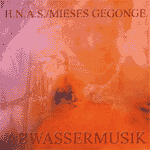 Abwassermusik of 1985 was the first H.N.A.S. LP and was culled from the duo's earlier cassette works. Credited to H.N.A.S. and Mieses Gegonge,the record is the most raw of these first five, relying heavily on themanipulated loops and cut-ups that ground the H.N.A.S. sound, and lesson the unique instrumentation that dominates the next three records. Arudimentary industrial sound carries over most tracks, but hereelements of kraut-rock and tinges of surrealism do emerge. The album'slong centerpiece recalls Throbbing Gristle at first, though evolvesinto a chorus of tribal drums, chirps, and theremin flourishes. As onmost all of these Dom reissues, an album's length of bonus tracks hasbeen added here, most very early, very sparse tape works. Exceptionsand highlights include a pummeling live track from Mieses Gegonge,sounding something like 18 drug-addled Faust-ians grooving in thebottom of a lake, and the first H.N.A.S. vinyl release, an earlyshowcase for Heemann's elegant drones.
Abwassermusik of 1985 was the first H.N.A.S. LP and was culled from the duo's earlier cassette works. Credited to H.N.A.S. and Mieses Gegonge,the record is the most raw of these first five, relying heavily on themanipulated loops and cut-ups that ground the H.N.A.S. sound, and lesson the unique instrumentation that dominates the next three records. Arudimentary industrial sound carries over most tracks, but hereelements of kraut-rock and tinges of surrealism do emerge. The album'slong centerpiece recalls Throbbing Gristle at first, though evolvesinto a chorus of tribal drums, chirps, and theremin flourishes. As onmost all of these Dom reissues, an album's length of bonus tracks hasbeen added here, most very early, very sparse tape works. Exceptionsand highlights include a pummeling live track from Mieses Gegonge,sounding something like 18 drug-addled Faust-ians grooving in thebottom of a lake, and the first H.N.A.S. vinyl release, an earlyshowcase for Heemann's elegant drones.
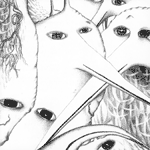 Melchior, released by United Dairies and featuring StevenStapleton and wife Diana Rogerson, is the first in the great trilogy ofearly H.N.A.S. albums. The increased influence of surrealism is notablefrom the start in a brilliant faux-lounge number complete withRogerson's twisted croon. The record is indulgently theatrical in manyplaces; humorous shouting bits and guitar flourishes fill the gapsbetween more overt kraut-rock borrowing (surprisingly Achim has said atthe time the band "knew nothing about Faust, Neu! and all the OHR/Krautbands...") and handclap-ful post punk jogs. The whole mess isbeautifully paced with soothing guitar lines and Heemann's incomparabledrones rescuing each moment of acid-headed confusion. Bonus tracks aremainly '85/'86 era H.N.A.S. tunes, including one of the first (andbest) songs recorded by the Melchior line-up, a gnarled landscape oftrumpet squeal and organ pulse with the spoken refrain, "Listen to thesun rise, hear the birds scream." Experimentation with a variety ofunlikely instruments is at a high among these tracks, creating anatmosphere so difficult to place that it belongs solely to the agelessobscurity of the Dadaists.
Melchior, released by United Dairies and featuring StevenStapleton and wife Diana Rogerson, is the first in the great trilogy ofearly H.N.A.S. albums. The increased influence of surrealism is notablefrom the start in a brilliant faux-lounge number complete withRogerson's twisted croon. The record is indulgently theatrical in manyplaces; humorous shouting bits and guitar flourishes fill the gapsbetween more overt kraut-rock borrowing (surprisingly Achim has said atthe time the band "knew nothing about Faust, Neu! and all the OHR/Krautbands...") and handclap-ful post punk jogs. The whole mess isbeautifully paced with soothing guitar lines and Heemann's incomparabledrones rescuing each moment of acid-headed confusion. Bonus tracks aremainly '85/'86 era H.N.A.S. tunes, including one of the first (andbest) songs recorded by the Melchior line-up, a gnarled landscape oftrumpet squeal and organ pulse with the spoken refrain, "Listen to thesun rise, hear the birds scream." Experimentation with a variety ofunlikely instruments is at a high among these tracks, creating anatmosphere so difficult to place that it belongs solely to the agelessobscurity of the Dadaists.
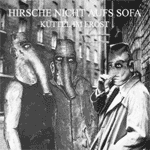 Recorded around the same time as Melchior, Küttel Im Frostis often described as the most pop of H.N.A.S. records. According toAchim, its primary influence was early Chrome, but where it is at allsimilar, Küttel towers above its peers. Rogerson's vocalsreturn, but they've gone from surreal chanteuse to psych screamer. Theastounding title track marks a peak in kraut-rock similarity withoutgiving an inch; it's quickly and artfully unclear how much of a mockeryKüttel's mish-mash of raucous pop and noise-burst is supposed tobe. Bonus tracks all come from H.N.A.S.' first of only two liveappearances. The concert is an excellent addition to this disc as muchof the performance comes from the Küttel album.
Recorded around the same time as Melchior, Küttel Im Frostis often described as the most pop of H.N.A.S. records. According toAchim, its primary influence was early Chrome, but where it is at allsimilar, Küttel towers above its peers. Rogerson's vocalsreturn, but they've gone from surreal chanteuse to psych screamer. Theastounding title track marks a peak in kraut-rock similarity withoutgiving an inch; it's quickly and artfully unclear how much of a mockeryKüttel's mish-mash of raucous pop and noise-burst is supposed tobe. Bonus tracks all come from H.N.A.S.' first of only two liveappearances. The concert is an excellent addition to this disc as muchof the performance comes from the Küttel album.
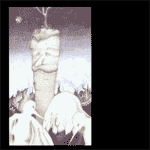 Im Schatten Der Möhre, the third of the truly amazing earlyH.N.A.S. works and the only one Heemann has felt necessary to reissueon his Streamline label, combines the tenuous, staged beauty of Melchior and the twisted jubilation of Küttel to glorious effect. More dense and cohesive than its predecessors, Im Schattenis also less humorous and more demanding. As such, the album could bethe group's most substantial. Bonus tracks here continue on Im Schatten'smore abstract bent, fore-grounding Heemann's future work in Mimir andMirror. Most are compilation tracks or studio outtakes from the '89-'91period, samples, tape loops, and guitar licks (courtesy of Heeman andbrother Andreas Martin) have never been harder to peel apart or label.
Im Schatten Der Möhre, the third of the truly amazing earlyH.N.A.S. works and the only one Heemann has felt necessary to reissueon his Streamline label, combines the tenuous, staged beauty of Melchior and the twisted jubilation of Küttel to glorious effect. More dense and cohesive than its predecessors, Im Schattenis also less humorous and more demanding. As such, the album could bethe group's most substantial. Bonus tracks here continue on Im Schatten'smore abstract bent, fore-grounding Heemann's future work in Mimir andMirror. Most are compilation tracks or studio outtakes from the '89-'91period, samples, tape loops, and guitar licks (courtesy of Heeman andbrother Andreas Martin) have never been harder to peel apart or label.
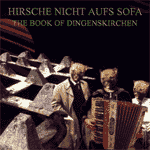 The release that should be the least substantial, 1988's The Book of Deingenskirchen,comprised of the group's unaltered '86 - '88 studio leftovers, is oddlyone of the most entertaining. Understandably more choppy and raw than Aberwassermusik, Bookfeatures a bare-bones industrial sound with elegant, even playfulinterludes and spoken female vocals throughout. Despite its beingessentially a trash heap, Book is the most soothing of allearly H.N.A.S.; comparable to falling in and out of sleep during an oldGerman art film. The bonus material here is by far the most various,collecting obscure compilation tracks from '85 to '92. Bizarre Melchior-ianswing tunes line up next to driving kraut grooves, pseudo-surf tracks,alien drones and absurd found sounds, all effortlessly pieced togetherin the way only H.N.A.S. can, or would.
The release that should be the least substantial, 1988's The Book of Deingenskirchen,comprised of the group's unaltered '86 - '88 studio leftovers, is oddlyone of the most entertaining. Understandably more choppy and raw than Aberwassermusik, Bookfeatures a bare-bones industrial sound with elegant, even playfulinterludes and spoken female vocals throughout. Despite its beingessentially a trash heap, Book is the most soothing of allearly H.N.A.S.; comparable to falling in and out of sleep during an oldGerman art film. The bonus material here is by far the most various,collecting obscure compilation tracks from '85 to '92. Bizarre Melchior-ianswing tunes line up next to driving kraut grooves, pseudo-surf tracks,alien drones and absurd found sounds, all effortlessly pieced togetherin the way only H.N.A.S. can, or would.
samples:
- Brate Mich Auf Offenem Feuer (Melchior)
- Grundgutiger! Der Drang Verstarkt Sich (Küttel Im Frost)
- Im Land Der Möhre (Im Schatten Der Möhre)
Read More
- Administrator
- Albums and Singles
Zuma
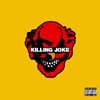 No longer can any man look me in the eye and call himself a rock fanuntil he has heard this masterpiece of magical changes. This is no mererock performance, but a curse upon the Bush clan and their corporatecronies, a fiery invocation to hasten the inevitable fall of the USEmpire. For the opening attack the hardcases gather around the tableand the game is big picture. "The Death and Resurrection Show" sets thescene with an irresistably thunderous tribal dance beat from hardcoreskinbeating primitive Dave Grohl, a simply devastating give upultimatum to false metal guitarists from Geordie and some of the mostimportant imagery to ever be transmitted via the rock medium from themuch maligned and misunderstood genius Jaz Coleman. Next, a hesitantwoman of liberty asks how we can go up against the government anddecides we must all rise at once. Jaz is up for trying to inspire us todo so, and "Total Invasion" lays it on the line for the liars whoblaspheme our names in the infinitely cancerous pursuit of profit.Fireblast riffs and collapsing skyscraper drums lumber asunder as Jazstrangles lizards from his throat to exorcise the Bush-pig demons andlay them in the dirt to perish of thirst as revenge for the third ofthe world they are slowly, meanly, inhumanly killing to keep the coldblood gurgling through their hardened arteries with seconds to go.Next, Jaz assumes the form of an "Asteroid" which crashes into theocean, flooding and laying waste to the proliferating homogenoustechnocracy. It recalls "Whiteout" amped up a zillion volts. Redefiningcyber-punk, "Implant" questions the morality of techno-genetic hybridsand mourns the inevitable loss of diversity that is plunging the racetowards eternal DOOM. Like "Asteroid," the entire song grinds to a haltseveral times for Jaz to scream his rage at the cold science fools andtheir deathsucking paymasters — "You just want to FUCKING CONTROL!"Then the headlong rush of "Blood On Your Hands" orders them to atonefor their crimes and paints a picture of a world laid waste by theiridiotic short sighted greed. It would really be a swell single, and notjust for the blessed inspiration of hearing the lyric, "Poison thewater so only your GM crops grow," infiltrating wishy washy MTV land.This is far beyond mere MALICIOUS DAMAGE. This is the most preciselydirected and accurately targeted distillation of molten rage I haveever experienced. And I've heard a lot of so called hardcore over theyears. The second half briefly drops a rung into more personal headspace. The arm waving wasteland zombie bop "Loose Cannon" recallsimagery from the dreams that inspired their seminal debut album and thecircle is completed. Both this rather odd choice for a single and thenext track reclaim and embellish the "Eighties" chug that poor CursedCobain filched in admiration. This is the only band on the planet whocould get away with a lighters in the air ballad like "You'll Never GetTo Me" probably because they have torches. Shame they didn't replace itwith the rabid "Inferno" which closes UK copies, but has been left offin other regions for obvious reasons. The next single is out this weekand is rock perfected to sum up the personal anger and despair atfalsely mediated visions of a world gone mad. Your mission is to buy"Seeing Red" from a chart return shop NOW and shake up the fakemoney-love kiddypops charts with something of substance, a song upthere with such classics as "The Wait" and "Pssyche." What feeling,loving, angry human could resist the joy of hearing a tune open withthe line, "They're dropping bombs again, and they're doing it in yourname," and continue with the ultimate condemnation of limited smalltown England tedium and ignorance. Grohl's drums shine, reverting moreto Scream patterns than Nirvana. Geordie rips the burning sky to shredswith the greatest one note guitar spears and the bass line is a massivedescending roll of thunder. The most harrowing trip is the eerie anddesolate "Dark Forces" in which Jaz trawls the mind of a desecratingcorporate ogre and survives to report the megalomaniac creep churnings.I wouldn't like to spend an hour locked inside those heads but Jaz is asterner being than I. The final report the megalomaniac creepchurnings. I wouldn't like to spend an hour locked inside those headsbut Jaz is a sterner being than I. The final battle sees the fall of"The House That Pain Built" as Zeppelin's "Kashmir" is ripped apart andrendered a mere grunt. After pain we WILL have JOY. This is one band toempower the will like no other. Our Rubicon approaches. Lets all go tothe Fire Dances once again. So be it! -
No longer can any man look me in the eye and call himself a rock fanuntil he has heard this masterpiece of magical changes. This is no mererock performance, but a curse upon the Bush clan and their corporatecronies, a fiery invocation to hasten the inevitable fall of the USEmpire. For the opening attack the hardcases gather around the tableand the game is big picture. "The Death and Resurrection Show" sets thescene with an irresistably thunderous tribal dance beat from hardcoreskinbeating primitive Dave Grohl, a simply devastating give upultimatum to false metal guitarists from Geordie and some of the mostimportant imagery to ever be transmitted via the rock medium from themuch maligned and misunderstood genius Jaz Coleman. Next, a hesitantwoman of liberty asks how we can go up against the government anddecides we must all rise at once. Jaz is up for trying to inspire us todo so, and "Total Invasion" lays it on the line for the liars whoblaspheme our names in the infinitely cancerous pursuit of profit.Fireblast riffs and collapsing skyscraper drums lumber asunder as Jazstrangles lizards from his throat to exorcise the Bush-pig demons andlay them in the dirt to perish of thirst as revenge for the third ofthe world they are slowly, meanly, inhumanly killing to keep the coldblood gurgling through their hardened arteries with seconds to go.Next, Jaz assumes the form of an "Asteroid" which crashes into theocean, flooding and laying waste to the proliferating homogenoustechnocracy. It recalls "Whiteout" amped up a zillion volts. Redefiningcyber-punk, "Implant" questions the morality of techno-genetic hybridsand mourns the inevitable loss of diversity that is plunging the racetowards eternal DOOM. Like "Asteroid," the entire song grinds to a haltseveral times for Jaz to scream his rage at the cold science fools andtheir deathsucking paymasters — "You just want to FUCKING CONTROL!"Then the headlong rush of "Blood On Your Hands" orders them to atonefor their crimes and paints a picture of a world laid waste by theiridiotic short sighted greed. It would really be a swell single, and notjust for the blessed inspiration of hearing the lyric, "Poison thewater so only your GM crops grow," infiltrating wishy washy MTV land.This is far beyond mere MALICIOUS DAMAGE. This is the most preciselydirected and accurately targeted distillation of molten rage I haveever experienced. And I've heard a lot of so called hardcore over theyears. The second half briefly drops a rung into more personal headspace. The arm waving wasteland zombie bop "Loose Cannon" recallsimagery from the dreams that inspired their seminal debut album and thecircle is completed. Both this rather odd choice for a single and thenext track reclaim and embellish the "Eighties" chug that poor CursedCobain filched in admiration. This is the only band on the planet whocould get away with a lighters in the air ballad like "You'll Never GetTo Me" probably because they have torches. Shame they didn't replace itwith the rabid "Inferno" which closes UK copies, but has been left offin other regions for obvious reasons. The next single is out this weekand is rock perfected to sum up the personal anger and despair atfalsely mediated visions of a world gone mad. Your mission is to buy"Seeing Red" from a chart return shop NOW and shake up the fakemoney-love kiddypops charts with something of substance, a song upthere with such classics as "The Wait" and "Pssyche." What feeling,loving, angry human could resist the joy of hearing a tune open withthe line, "They're dropping bombs again, and they're doing it in yourname," and continue with the ultimate condemnation of limited smalltown England tedium and ignorance. Grohl's drums shine, reverting moreto Scream patterns than Nirvana. Geordie rips the burning sky to shredswith the greatest one note guitar spears and the bass line is a massivedescending roll of thunder. The most harrowing trip is the eerie anddesolate "Dark Forces" in which Jaz trawls the mind of a desecratingcorporate ogre and survives to report the megalomaniac creep churnings.I wouldn't like to spend an hour locked inside those heads but Jaz is asterner being than I. The final report the megalomaniac creepchurnings. I wouldn't like to spend an hour locked inside those headsbut Jaz is a sterner being than I. The final battle sees the fall of"The House That Pain Built" as Zeppelin's "Kashmir" is ripped apart andrendered a mere grunt. After pain we WILL have JOY. This is one band toempower the will like no other. Our Rubicon approaches. Lets all go tothe Fire Dances once again. So be it! - samples:
Read More
- Administrator
- Albums and Singles
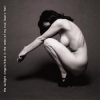 It's been a tumultuous ride for Greg Dulli. The Afghan Whigs stormedonto the scene in 1986, determined to destroy all the walls that stoodin their way. As the years went by, they slowly metamorphosed into asex rock project, with Dulli's howl shifting more into a purr meant tocoax off panties rather than bust down barriers. And then, after threelabels and fifteen years, they called it quits. Dulli had alreadystarted his new project in the Twilight Singers, but their debut waslanguid and laden with death imagery, probably because Dulli wrote therecord in the pit of a depression determined to kill him. Needless tosay, it didn't fly off the record shelves, despite the best efforts ofFila Brazilia to dance up the dirges. It was time for a change, itseemed, as Dulli parted ways with his second major record label in fiveyears. Now with a firm cheering section in place with Birdman, it feelslike Dulli has hit his stride again, and he's brought the angry swaggerwith it. This limited edition EP is the first new Twilight Singersmaterial in 3 years, featuring a cover and two original tracks. Wherethe Twilight Singers used to be a mellow affair with scattered dancebeats, now it's as if Dulli decided his two bands needed to become one."Black is the Color of My True Love's Hair" is a traditional that NinaSimone made famous, and as he did on Uptown Avondalewith classic soul numbers, Dulli makes it his own with classic verve.It starts off like any Twilight Singers song would, but when theguitars join with Dulli's screams, it's like the Whigs at their height:goosebumps galore. "Domani," too, at first is more like what you'dexpect from the Singers, with soul licks and that sexy vocal. But againthe wall of guitars return halfway through the song, and the Singersare born anew. "Now I can see, everything's clear up here from myposition" says it all as Dulli's confidence has never been thischarged. "Son of the Morning Star" sounds like a remix of anothertrack, with faded vocals and a rapid-fire dance beat. The track's a bitof a throwaway until the strings come in, and even then I wouldprobably skip it on repeat listens. On the strength of the first twotracks, though, the forthcoming album should be a real treat withplenty of sex to go around.
It's been a tumultuous ride for Greg Dulli. The Afghan Whigs stormedonto the scene in 1986, determined to destroy all the walls that stoodin their way. As the years went by, they slowly metamorphosed into asex rock project, with Dulli's howl shifting more into a purr meant tocoax off panties rather than bust down barriers. And then, after threelabels and fifteen years, they called it quits. Dulli had alreadystarted his new project in the Twilight Singers, but their debut waslanguid and laden with death imagery, probably because Dulli wrote therecord in the pit of a depression determined to kill him. Needless tosay, it didn't fly off the record shelves, despite the best efforts ofFila Brazilia to dance up the dirges. It was time for a change, itseemed, as Dulli parted ways with his second major record label in fiveyears. Now with a firm cheering section in place with Birdman, it feelslike Dulli has hit his stride again, and he's brought the angry swaggerwith it. This limited edition EP is the first new Twilight Singersmaterial in 3 years, featuring a cover and two original tracks. Wherethe Twilight Singers used to be a mellow affair with scattered dancebeats, now it's as if Dulli decided his two bands needed to become one."Black is the Color of My True Love's Hair" is a traditional that NinaSimone made famous, and as he did on Uptown Avondalewith classic soul numbers, Dulli makes it his own with classic verve.It starts off like any Twilight Singers song would, but when theguitars join with Dulli's screams, it's like the Whigs at their height:goosebumps galore. "Domani," too, at first is more like what you'dexpect from the Singers, with soul licks and that sexy vocal. But againthe wall of guitars return halfway through the song, and the Singersare born anew. "Now I can see, everything's clear up here from myposition" says it all as Dulli's confidence has never been thischarged. "Son of the Morning Star" sounds like a remix of anothertrack, with faded vocals and a rapid-fire dance beat. The track's a bitof a throwaway until the strings come in, and even then I wouldprobably skip it on repeat listens. On the strength of the first twotracks, though, the forthcoming album should be a real treat withplenty of sex to go around.Read More
- Administrator
- Albums and Singles
Vast, "Turquoise/Crimson"
self released
The influence of the electro-pop 80s is not just living strong, it'sexperiencing a genuine revival of late. Dave Gahan's got a solo album,Duran Duran is recording again with the original members, and artistslike Kenna are recording albums drenched in the New Order pastiche. Oneartist who has always seemed to like this palette while not beingafraid to take chances is Jon Crosby, aka Vast. With his two albums onElektra, Crosby embraced the industrial electronic sound with a modicumof pop sensibilities to create his own path, with odd samples enteringthe mix from the Bulgarian Voices to Benedictine Monks. Through it all,though, is a heavy Joy Division and Sisters of Mercy feel, with darksubject matter as the anchor. Now Crosby is taking his biggest chanceyet, separated from Elektra who wanted a more radio-friendly sound:he's releasing the demos for his new album as two separate ten-songdownloads on his website. It's not a new concept, obviously, andthere's no planned fan interaction where they get input into thealbum's final tracklisting. It's just a chance to hear the new musicand to see how it will evolve. Turquoise and Crimson represent the newevolution in the Vast sound, with more of the same from Crosby, justfree from the bounds of label politics.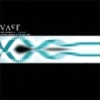 Turquoise is the stronger of the two mini-albums, withharder-edged arrangements and performances. The title track starts offwith the bitter anger of loneliness, and its a tone that remainsthroughout with occasional moments of slower tempo and quiet. There's acold that runs at the core of all these songs, like there's nothingleft at the end of the day to run on. This music is the loss of a loveror a loved one, of innocence, and of dreams you hoped would materializebut always really knew would melt away. As a result, the lyrics givevery little in terms of hope. Some of the lyrics are a bit on the triteside, as well, so my hope is that some of them will change before thefinal release, or the weaker songs will be left off entirely ("Can'tSay No to You" and "Candle" are prime examples). But there is an energyin these songs that is undeniable. Crosby is lashing out, but he's notproceeding unabated. He wants forgiveness, he wants to belong tosomething or someone. That doesn't mean he can't be bitter about notbelonging now. He also has a real gift for melody that shines throughany rough spots that exist. "I Woke Up LA" and "Falling From the Sky"are powerhouse songs, and "Desert Garden" brings to life a futilitythat everyone has felt at some point. Turquoise soars with melodies andhooks, stumbles a little lyrically, but overall walks on its own twofeet with confidence.
Turquoise is the stronger of the two mini-albums, withharder-edged arrangements and performances. The title track starts offwith the bitter anger of loneliness, and its a tone that remainsthroughout with occasional moments of slower tempo and quiet. There's acold that runs at the core of all these songs, like there's nothingleft at the end of the day to run on. This music is the loss of a loveror a loved one, of innocence, and of dreams you hoped would materializebut always really knew would melt away. As a result, the lyrics givevery little in terms of hope. Some of the lyrics are a bit on the triteside, as well, so my hope is that some of them will change before thefinal release, or the weaker songs will be left off entirely ("Can'tSay No to You" and "Candle" are prime examples). But there is an energyin these songs that is undeniable. Crosby is lashing out, but he's notproceeding unabated. He wants forgiveness, he wants to belong tosomething or someone. That doesn't mean he can't be bitter about notbelonging now. He also has a real gift for melody that shines throughany rough spots that exist. "I Woke Up LA" and "Falling From the Sky"are powerhouse songs, and "Desert Garden" brings to life a futilitythat everyone has felt at some point. Turquoise soars with melodies andhooks, stumbles a little lyrically, but overall walks on its own twofeet with confidence.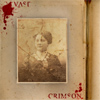 What Turquoise lacks lyrically, Crimsonmore than makes up for. Any album that starts off with "I know you justwant to kill me" is going to ride a rollercoaster of emotions, and onthese songs Crosby lets out all the demons to play. Thematically, thisgroup is also about bitterness and loss, but the feeling is conveyedwith a lighter brush. With the exception of a few songs, this would beconsidered the mellow record, and the confidence is all but replaced bycrippling doubt and insecurity. Where the songs on Turquoise seem to fit together, there is a start and stop on Crimsonwhere things don't exactly match up, and that seems to be part of thepoint. Harder-edged songs are there to break up the monotony andoverwhelming depression, but also to jar and bring across a feeling ofuncomfortability. True, they're demos, but they were arranged this wayfor a purpose. Nevertheless, the songs may not be as agressive, butthey're just as impressive. "I Need to Say Goodbye" is the ultimatekiss-off, the "I won't be played with" song that hits where it hurts."Winter in My Heart" and "Where it Never Rains" bring across both sidesof the love coin, where it's missing and desperately wanted and whereit's found and is clutched at tightly in the hope that it won't go awayagain. The only misstep is the heavy-handed social commentary of"That's My Boy," which seems to be an examination of the culture thatproduced the killers of Columbine. Crosby doesn't complete the thought,and switches to a faith examination that confuses the issue, so thesong doesn't hit the right switches. Overall, it's a minor flaw, andboth mini-albums have enough strong songs to make a fine album. Bothare a step beyond his previous work, and with the right fixing theycould be the makings of the best Vast album yet.
What Turquoise lacks lyrically, Crimsonmore than makes up for. Any album that starts off with "I know you justwant to kill me" is going to ride a rollercoaster of emotions, and onthese songs Crosby lets out all the demons to play. Thematically, thisgroup is also about bitterness and loss, but the feeling is conveyedwith a lighter brush. With the exception of a few songs, this would beconsidered the mellow record, and the confidence is all but replaced bycrippling doubt and insecurity. Where the songs on Turquoise seem to fit together, there is a start and stop on Crimsonwhere things don't exactly match up, and that seems to be part of thepoint. Harder-edged songs are there to break up the monotony andoverwhelming depression, but also to jar and bring across a feeling ofuncomfortability. True, they're demos, but they were arranged this wayfor a purpose. Nevertheless, the songs may not be as agressive, butthey're just as impressive. "I Need to Say Goodbye" is the ultimatekiss-off, the "I won't be played with" song that hits where it hurts."Winter in My Heart" and "Where it Never Rains" bring across both sidesof the love coin, where it's missing and desperately wanted and whereit's found and is clutched at tightly in the hope that it won't go awayagain. The only misstep is the heavy-handed social commentary of"That's My Boy," which seems to be an examination of the culture thatproduced the killers of Columbine. Crosby doesn't complete the thought,and switches to a faith examination that confuses the issue, so thesong doesn't hit the right switches. Overall, it's a minor flaw, andboth mini-albums have enough strong songs to make a fine album. Bothare a step beyond his previous work, and with the right fixing theycould be the makings of the best Vast album yet.
samples:
TurquoiseCrimsonmore samples:
Read More
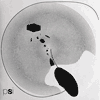 There's altogether too much dilettantism(²)in the world of experimental music, all manners of musical incompetencecan hide behind strangeness and it seems that anyone can make noise.All too often I get the feeling that what motivates the latestimprovised experimental music project I subject myself to is theshortest path to contemporary artist status. It gets quite tiresome andthe conspiracy of silence surrounding the poseurs and their noveltystunts is frustrating. But free improvised music is a soil fertile forflowers as well as weeds. It defeats all other musics in its capacityfor surprise and drama and perseverance can pay off. This first disk byNYC trio PSI is one that makes the suffering worth while. JamieFennelly plays electronics and seems to use field recordings as part ofhis palate, Chris Forsyth plays guitar unconventionally (I know, aludicrously dated thing to say) and Frtiz Welch plays percussion andfound objects. Comparison to AMM is obvious. There is a comfort andconfidence in their sparse playing and a control of the collectivesound for which AMM is the archetype. The sound is also not unlikeAMM's—Welch's techniques, especially the bowing has a familiarity andboth the guitar playing and electronic sound like Keith Rowe at times.The interactions of the individuals becomes more apparent on repeatedlistening but more of the time the cohesive whole is what it's allabout. What impresses the most is how this collective voice achievesgenerative exposition of its ideas without ever getting stuck. It moveson from any given topic at the right time almost as though compositionwere involved. Thus many of the best aspects of improv are shown off ina fairly understated mezzo forte. The distinction between the flowersand the weeds in the fields of experimental improv may be hard toexplain but it is not hard to hear. PSI is a pleasing reassurance thatour belief in the genre is not purely religious. -
There's altogether too much dilettantism(²)in the world of experimental music, all manners of musical incompetencecan hide behind strangeness and it seems that anyone can make noise.All too often I get the feeling that what motivates the latestimprovised experimental music project I subject myself to is theshortest path to contemporary artist status. It gets quite tiresome andthe conspiracy of silence surrounding the poseurs and their noveltystunts is frustrating. But free improvised music is a soil fertile forflowers as well as weeds. It defeats all other musics in its capacityfor surprise and drama and perseverance can pay off. This first disk byNYC trio PSI is one that makes the suffering worth while. JamieFennelly plays electronics and seems to use field recordings as part ofhis palate, Chris Forsyth plays guitar unconventionally (I know, aludicrously dated thing to say) and Frtiz Welch plays percussion andfound objects. Comparison to AMM is obvious. There is a comfort andconfidence in their sparse playing and a control of the collectivesound for which AMM is the archetype. The sound is also not unlikeAMM's—Welch's techniques, especially the bowing has a familiarity andboth the guitar playing and electronic sound like Keith Rowe at times.The interactions of the individuals becomes more apparent on repeatedlistening but more of the time the cohesive whole is what it's allabout. What impresses the most is how this collective voice achievesgenerative exposition of its ideas without ever getting stuck. It moveson from any given topic at the right time almost as though compositionwere involved. Thus many of the best aspects of improv are shown off ina fairly understated mezzo forte. The distinction between the flowersand the weeds in the fields of experimental improv may be hard toexplain but it is not hard to hear. PSI is a pleasing reassurance thatour belief in the genre is not purely religious. -
- Administrator
- Albums and Singles
 There's altogether too much dilettantism(²)in the world of experimental music, all manners of musical incompetencecan hide behind strangeness and it seems that anyone can make noise.All too often I get the feeling that what motivates the latestimprovised experimental music project I subject myself to is theshortest path to contemporary artist status. It gets quite tiresome andthe conspiracy of silence surrounding the poseurs and their noveltystunts is frustrating. But free improvised music is a soil fertile forflowers as well as weeds. It defeats all other musics in its capacityfor surprise and drama and perseverance can pay off. This first disk byNYC trio PSI is one that makes the suffering worth while. JamieFennelly plays electronics and seems to use field recordings as part ofhis palate, Chris Forsyth plays guitar unconventionally (I know, aludicrously dated thing to say) and Frtiz Welch plays percussion andfound objects. Comparison to AMM is obvious. There is a comfort andconfidence in their sparse playing and a control of the collectivesound for which AMM is the archetype. The sound is also not unlikeAMM's—Welch's techniques, especially the bowing has a familiarity andboth the guitar playing and electronic sound like Keith Rowe at times.The interactions of the individuals becomes more apparent on repeatedlistening but more of the time the cohesive whole is what it's allabout. What impresses the most is how this collective voice achievesgenerative exposition of its ideas without ever getting stuck. It moveson from any given topic at the right time almost as though compositionwere involved. Thus many of the best aspects of improv are shown off ina fairly understated mezzo forte. The distinction between the flowersand the weeds in the fields of experimental improv may be hard toexplain but it is not hard to hear. PSI is a pleasing reassurance thatour belief in the genre is not purely religious. -
There's altogether too much dilettantism(²)in the world of experimental music, all manners of musical incompetencecan hide behind strangeness and it seems that anyone can make noise.All too often I get the feeling that what motivates the latestimprovised experimental music project I subject myself to is theshortest path to contemporary artist status. It gets quite tiresome andthe conspiracy of silence surrounding the poseurs and their noveltystunts is frustrating. But free improvised music is a soil fertile forflowers as well as weeds. It defeats all other musics in its capacityfor surprise and drama and perseverance can pay off. This first disk byNYC trio PSI is one that makes the suffering worth while. JamieFennelly plays electronics and seems to use field recordings as part ofhis palate, Chris Forsyth plays guitar unconventionally (I know, aludicrously dated thing to say) and Frtiz Welch plays percussion andfound objects. Comparison to AMM is obvious. There is a comfort andconfidence in their sparse playing and a control of the collectivesound for which AMM is the archetype. The sound is also not unlikeAMM's—Welch's techniques, especially the bowing has a familiarity andboth the guitar playing and electronic sound like Keith Rowe at times.The interactions of the individuals becomes more apparent on repeatedlistening but more of the time the cohesive whole is what it's allabout. What impresses the most is how this collective voice achievesgenerative exposition of its ideas without ever getting stuck. It moveson from any given topic at the right time almost as though compositionwere involved. Thus many of the best aspects of improv are shown off ina fairly understated mezzo forte. The distinction between the flowersand the weeds in the fields of experimental improv may be hard toexplain but it is not hard to hear. PSI is a pleasing reassurance thatour belief in the genre is not purely religious. - Read More
- Administrator
- Albums and Singles
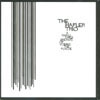 Though I only noticed IT as IT came screaming at my face, the aftermath(the dreams I inflicted upon my lack-of-consciousness through sheerforce of will) was fertilized with ITs form and ferocity. IT was ascattered being made both of sound and image though not entirely solidas if IT were completely of the extended realm. Imagine frames orshards of glass excreting tuneless television stations; nothing butstatic and bursts of images from some broadcast somewhere in theuniverse. Women's voices singing out, exaggerating pain, pleasure, andimagination (though it may be argued that these are really not seperateexperiences). While in my dizzying dream these shards leaned over meand felt their way beyond my oblique and stationary body to the roombeyond where all manner of colors were spilling forth as if the glow ofan old stereo receiver were ejaculating its contents onto the floor andinto the air. I became terrified when ITs voice went metallic andscratched its way into the air with a hiss and scream. I could not moveand there were bells in my ears, now. Perhaps this was the sound offear but my curiousity immediately took control and rendered the airabout me into black cloth and various shades of curtains. I rose andthrew back each cover as if searching for a toy I had lost anddesperately wanted back in my arms. I knew that broken image wassomewhere in this maze, too and so each movement breathed nervoussounds and anxious movements. The glow was there, ITs unearthly aurashining through the ether blinding the meters in front of me. There wasbut one final action for me to take and as I threw adrift the finalveil ITs facade lifted. I stared at her and laughed knowing it meantsomething only so long as I lived.
Though I only noticed IT as IT came screaming at my face, the aftermath(the dreams I inflicted upon my lack-of-consciousness through sheerforce of will) was fertilized with ITs form and ferocity. IT was ascattered being made both of sound and image though not entirely solidas if IT were completely of the extended realm. Imagine frames orshards of glass excreting tuneless television stations; nothing butstatic and bursts of images from some broadcast somewhere in theuniverse. Women's voices singing out, exaggerating pain, pleasure, andimagination (though it may be argued that these are really not seperateexperiences). While in my dizzying dream these shards leaned over meand felt their way beyond my oblique and stationary body to the roombeyond where all manner of colors were spilling forth as if the glow ofan old stereo receiver were ejaculating its contents onto the floor andinto the air. I became terrified when ITs voice went metallic andscratched its way into the air with a hiss and scream. I could not moveand there were bells in my ears, now. Perhaps this was the sound offear but my curiousity immediately took control and rendered the airabout me into black cloth and various shades of curtains. I rose andthrew back each cover as if searching for a toy I had lost anddesperately wanted back in my arms. I knew that broken image wassomewhere in this maze, too and so each movement breathed nervoussounds and anxious movements. The glow was there, ITs unearthly aurashining through the ether blinding the meters in front of me. There wasbut one final action for me to take and as I threw adrift the finalveil ITs facade lifted. I stared at her and laughed knowing it meantsomething only so long as I lived.Read More
- Michael Patrick Brady
- Albums and Singles
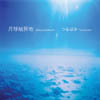 Simultaneously released with their Rebel Powers' Not One Star Will Stand the Night, Emi Nobuko, Higashi Hiroshi, and Kawabata Makoto's Gekkyukekkaichiserves as a kind of companion to the dark, gnashing tones of theformer. The modus operandi is the same: two extended tracks, an hour intotal, of free improvisation without cuts or overdubs. These are meantto be pure, unadulterated acidic shots to the senses. Unlike RebelPowers, which delved into heavy blacks and grays, the immediate tone ofGekkyukekkaichi is one more concerned with points of light,shimmering into view and filling the senses. The intensity andextremity still exists, but it isn't a lurching menace: it is containedin a more dynamic wash of colors and shapes. The title track twistsaround itself as Makoto's fully live guitar kicks up dust amidst thesparse percussion. It is the sounds of what is seen after looking at abright light for too long and then closing the eyes. The after effectslinger on the cornea like a mix of spectral ghosts, rushing forwardbefore shaking themselves apart to make way for the next hits of eyedamage. It hurts, but it's just so cool to watch. A short interlude inthe middle of the storm allows for a breather before amplifying theenergy to even greater heights for the closing. When "Seiitenrinengi"begins, the restraint in its form is startling compared to the titletrack. Here, there seems to be more method than madness, less staringat the sun and more looking at what it is shining upon. It feels like alandscape soundtrack with the music gently rising and falling to matchthe terrain and trace its image in sound. Nearly ten minutes into thepiece, the landscape takes a harsh turn, and the music rapidly climbsin strength and speed as if the ground just broke out from underneathit. It's a high-speed plunge that sears the eardrums with nasty squallsof white noise and high-pitched, screaming drones. This movement comescrashing to an end and the music sputters, plucks, and taps along thesilence that is now visible as the waves of noise dissipate. Whatemerges from this break is a more focused movement, seeming to meld thefirst controlled section with the second freak-out section. Now, likeany long form piece, there are moments of power that draw the listenerin with their intricacy and inventiveness, but there are also stretcheswhere the needle skips the groove and things just aren't clickingright. Gekkyukekkaichi is a more consistently solid effort than Not One Star Will Stand the Night,but what they share in method and design also leads to them sharinginadequacies. The extended, improvised, one take style results in anaimless, drifting section, or a place where the music could havepossible used a little editing. Still, despite those little deathsalong the way, there are moments of great ideas in these long pieces,and they make for an illuminating listen.
Simultaneously released with their Rebel Powers' Not One Star Will Stand the Night, Emi Nobuko, Higashi Hiroshi, and Kawabata Makoto's Gekkyukekkaichiserves as a kind of companion to the dark, gnashing tones of theformer. The modus operandi is the same: two extended tracks, an hour intotal, of free improvisation without cuts or overdubs. These are meantto be pure, unadulterated acidic shots to the senses. Unlike RebelPowers, which delved into heavy blacks and grays, the immediate tone ofGekkyukekkaichi is one more concerned with points of light,shimmering into view and filling the senses. The intensity andextremity still exists, but it isn't a lurching menace: it is containedin a more dynamic wash of colors and shapes. The title track twistsaround itself as Makoto's fully live guitar kicks up dust amidst thesparse percussion. It is the sounds of what is seen after looking at abright light for too long and then closing the eyes. The after effectslinger on the cornea like a mix of spectral ghosts, rushing forwardbefore shaking themselves apart to make way for the next hits of eyedamage. It hurts, but it's just so cool to watch. A short interlude inthe middle of the storm allows for a breather before amplifying theenergy to even greater heights for the closing. When "Seiitenrinengi"begins, the restraint in its form is startling compared to the titletrack. Here, there seems to be more method than madness, less staringat the sun and more looking at what it is shining upon. It feels like alandscape soundtrack with the music gently rising and falling to matchthe terrain and trace its image in sound. Nearly ten minutes into thepiece, the landscape takes a harsh turn, and the music rapidly climbsin strength and speed as if the ground just broke out from underneathit. It's a high-speed plunge that sears the eardrums with nasty squallsof white noise and high-pitched, screaming drones. This movement comescrashing to an end and the music sputters, plucks, and taps along thesilence that is now visible as the waves of noise dissipate. Whatemerges from this break is a more focused movement, seeming to meld thefirst controlled section with the second freak-out section. Now, likeany long form piece, there are moments of power that draw the listenerin with their intricacy and inventiveness, but there are also stretcheswhere the needle skips the groove and things just aren't clickingright. Gekkyukekkaichi is a more consistently solid effort than Not One Star Will Stand the Night,but what they share in method and design also leads to them sharinginadequacies. The extended, improvised, one take style results in anaimless, drifting section, or a place where the music could havepossible used a little editing. Still, despite those little deathsalong the way, there are moments of great ideas in these long pieces,and they make for an illuminating listen. Read More
 I'm consistently impressed by that essential spark in the Japanesecreative potential that seems uncannily able to co-opt elements ofWestern culture and effortlessly transform them into a postmodernhybrid that is strangely familiar, yet entirely alien. There are clearforerunners for the sound of the Acid Mothers Temple — the space-rockof Hawkwind, the fuzz-metal of Blue Cheer and the hippie cult music ofAmon Duul II — and yet guru Kawabata Makoto and his family never engagein heavy-handed imitations of these influences. This cult of shaggy,unwashed heathens has repeatedly shown its talent for creatingforcefully original material that pays homage to its godfathers evenwhile joyously trampling on their graves. Magical Power From Marsis the latest addition to the Temple's absurdly prolific discography.This CD collects the three limited edition hologram EPs released byImportant Records earlier this year, and adds one bonus track availableonly on this release. The cover is another inspired lenticularspacescape - a retro-futurist scene resembling a 1920 World's Fairartist's rendering of humanity's inevitable colonization of Mars. Thetrack titles are puns on glam-era Bowie, oddly appropriate for thesefour massive, cosmic slabs of flamboyantly exaggerated rock n' roll."Ziggy Sitar Dust Raga" feels like an uneasy countdown: a persistentsitar scale backed by lunar synthesizers and a galaxy of hazyreverberations. This track kept me on the edge of my seat waiting forthe eventual onslaught. Ten minutes in, Cotton Casino's "Prepare fortakeoff!" shrieks made me feel ever closer to the inevitable launch.Twenty minutes later and surprise! No liftoff. It's all wind-up with noexplosion, like a long, exhausting tantric sex ritual. The second andfinest track, "Diamond Doggy Peggy," starts with Casino's possessedululations, before kicking the Acid Mothership into high shamanic gear,Makoto's hyperspeed guitar loosening its lysergic vibrations out intothe solar system. Cotton Casino's chirping synths sprinkle fairy dust(or angel dust?) over the cosmic proceedings. The bonus track, "AladdinKane," is a showcase for the Temple's synth and backwards-guitarprowess: a Joe Meek-meets-Tangerine Dream breakdown of galacticproportions. It's a haunting and genuinely creepy track that meandersthrough black holes and nebulous corridors, asking far more questionsthan it answers. "Cosmic Funky Dolly" is the final insult, a 20-minuteanomalous orbit that reverses the polarities of inner and outer spaceas it burns up on re-entry. This final track plays like a remake ofKubrick's 2001: A Space Odyssey directed by Shinya Tsukamoto and starring the Manson Family. Luckily, the incomprehensibly galactic Magical Power From MarsCD conveniently arrives just in time to pop it in the player, drop acidand peruse the new high-powered telescope photographs of the RedPlanet.
I'm consistently impressed by that essential spark in the Japanesecreative potential that seems uncannily able to co-opt elements ofWestern culture and effortlessly transform them into a postmodernhybrid that is strangely familiar, yet entirely alien. There are clearforerunners for the sound of the Acid Mothers Temple — the space-rockof Hawkwind, the fuzz-metal of Blue Cheer and the hippie cult music ofAmon Duul II — and yet guru Kawabata Makoto and his family never engagein heavy-handed imitations of these influences. This cult of shaggy,unwashed heathens has repeatedly shown its talent for creatingforcefully original material that pays homage to its godfathers evenwhile joyously trampling on their graves. Magical Power From Marsis the latest addition to the Temple's absurdly prolific discography.This CD collects the three limited edition hologram EPs released byImportant Records earlier this year, and adds one bonus track availableonly on this release. The cover is another inspired lenticularspacescape - a retro-futurist scene resembling a 1920 World's Fairartist's rendering of humanity's inevitable colonization of Mars. Thetrack titles are puns on glam-era Bowie, oddly appropriate for thesefour massive, cosmic slabs of flamboyantly exaggerated rock n' roll."Ziggy Sitar Dust Raga" feels like an uneasy countdown: a persistentsitar scale backed by lunar synthesizers and a galaxy of hazyreverberations. This track kept me on the edge of my seat waiting forthe eventual onslaught. Ten minutes in, Cotton Casino's "Prepare fortakeoff!" shrieks made me feel ever closer to the inevitable launch.Twenty minutes later and surprise! No liftoff. It's all wind-up with noexplosion, like a long, exhausting tantric sex ritual. The second andfinest track, "Diamond Doggy Peggy," starts with Casino's possessedululations, before kicking the Acid Mothership into high shamanic gear,Makoto's hyperspeed guitar loosening its lysergic vibrations out intothe solar system. Cotton Casino's chirping synths sprinkle fairy dust(or angel dust?) over the cosmic proceedings. The bonus track, "AladdinKane," is a showcase for the Temple's synth and backwards-guitarprowess: a Joe Meek-meets-Tangerine Dream breakdown of galacticproportions. It's a haunting and genuinely creepy track that meandersthrough black holes and nebulous corridors, asking far more questionsthan it answers. "Cosmic Funky Dolly" is the final insult, a 20-minuteanomalous orbit that reverses the polarities of inner and outer spaceas it burns up on re-entry. This final track plays like a remake ofKubrick's 2001: A Space Odyssey directed by Shinya Tsukamoto and starring the Manson Family. Luckily, the incomprehensibly galactic Magical Power From MarsCD conveniently arrives just in time to pop it in the player, drop acidand peruse the new high-powered telescope photographs of the RedPlanet.
- Administrator
- Albums and Singles
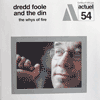 A strange album that, try as I may, I can't help but like. It's theposturing evident on the packaging that's off-putting, borrowed cachetfrom old-fashioned fine art records (that's just sooo SYR) and oldschool improv. I guess that stuff works to an extent and you can'tblame folk for wanting to sell their disks. The music, on the otherhand, is handily distinct and functional. At heart its live recordingof a psychedelic group improvisation blow-out: three guitars (ThurstonMoore, Patrick Best and Jack Rose) plus Indian strings (Mike Gangloff)build a great big flat wall of atonal drone, skitter and feedbackagainst which Chris Corsano drums up a furious pounding storm andthrough which Foole's (Dan Ireton) heavily echoed and reverberatedvocal droning, shouting, and wailing tunelessly wanders. It's basicallyall noise played at a fairly static level with some embellishment.There's an impression of rather little interaction between theimprovisers for much of the way but that's looking at this the wrongway, as thought it were old-school improv (e.g. Company or AMM). Incontrast to that, what's really happening is what talented psychrockers do (did) in their long out-chorus extemporizations—the buildingup of one great big collective head-banging drone made up of as manycomponents as the band can muster. No one is trying to stand out frontin the sense of soloing or being a virtuoso and there's none of thechallenge-response approach—it's all collective action. What makes itstrange is the mix. You would be forgiven for not noticing Corsano'sdrumming, he's so low in the mix. Once you cotton on to thatcontribution the whole thing takes on a whole different aspect, turningfrom a nice little noise package into a dynamic driving rock-out.Foole's singing is primitive, musically-challenged but fairlyeffective. On most tracks he's just providing another element of thecollective din, adding color and a little humanity to the guitar ladenwhole. Emotionally powerful or aesthetically challenging he is not butthe heavy use of reverb etc. on his free-form vocalization brings anice 60s art experiment touch. I have a sense that the music isn'ttaking itself too seriously and that's also the key to enjoying it: agreat big indulgent degenerate-rock blow-out. How this release relatesto the two from the mid-80s when Ireton was collaborating with Missionof Burma alumni, I can't say, not having heard those. -
A strange album that, try as I may, I can't help but like. It's theposturing evident on the packaging that's off-putting, borrowed cachetfrom old-fashioned fine art records (that's just sooo SYR) and oldschool improv. I guess that stuff works to an extent and you can'tblame folk for wanting to sell their disks. The music, on the otherhand, is handily distinct and functional. At heart its live recordingof a psychedelic group improvisation blow-out: three guitars (ThurstonMoore, Patrick Best and Jack Rose) plus Indian strings (Mike Gangloff)build a great big flat wall of atonal drone, skitter and feedbackagainst which Chris Corsano drums up a furious pounding storm andthrough which Foole's (Dan Ireton) heavily echoed and reverberatedvocal droning, shouting, and wailing tunelessly wanders. It's basicallyall noise played at a fairly static level with some embellishment.There's an impression of rather little interaction between theimprovisers for much of the way but that's looking at this the wrongway, as thought it were old-school improv (e.g. Company or AMM). Incontrast to that, what's really happening is what talented psychrockers do (did) in their long out-chorus extemporizations—the buildingup of one great big collective head-banging drone made up of as manycomponents as the band can muster. No one is trying to stand out frontin the sense of soloing or being a virtuoso and there's none of thechallenge-response approach—it's all collective action. What makes itstrange is the mix. You would be forgiven for not noticing Corsano'sdrumming, he's so low in the mix. Once you cotton on to thatcontribution the whole thing takes on a whole different aspect, turningfrom a nice little noise package into a dynamic driving rock-out.Foole's singing is primitive, musically-challenged but fairlyeffective. On most tracks he's just providing another element of thecollective din, adding color and a little humanity to the guitar ladenwhole. Emotionally powerful or aesthetically challenging he is not butthe heavy use of reverb etc. on his free-form vocalization brings anice 60s art experiment touch. I have a sense that the music isn'ttaking itself too seriously and that's also the key to enjoying it: agreat big indulgent degenerate-rock blow-out. How this release relatesto the two from the mid-80s when Ireton was collaborating with Missionof Burma alumni, I can't say, not having heard those. - Read More